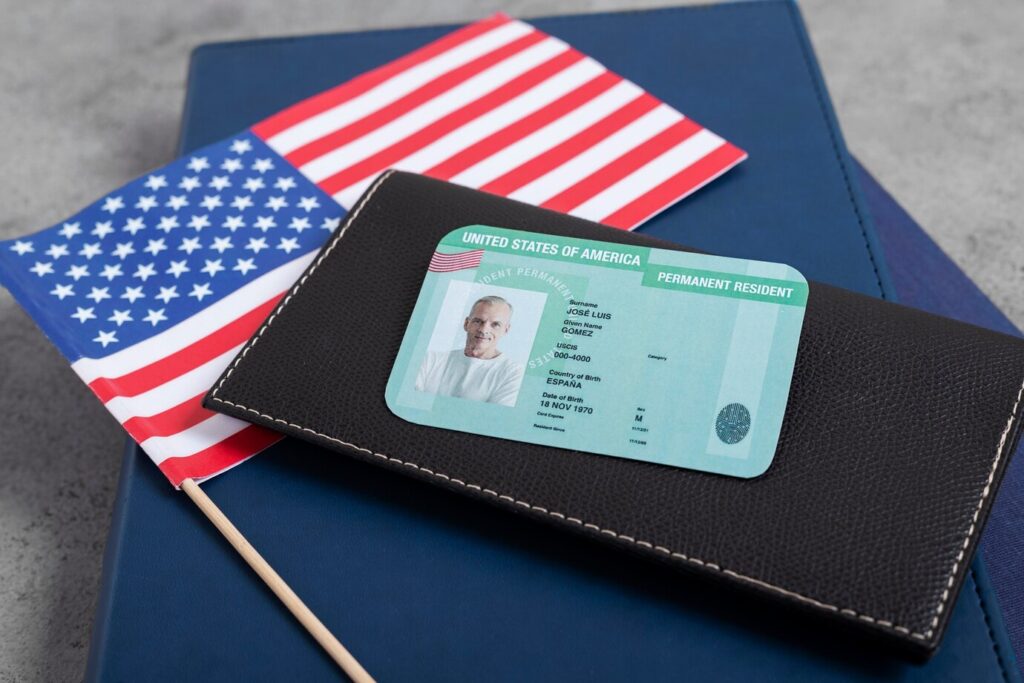Green Card holders travelling internationally must be aware of evolving security measures at US ports of entry. Recent reports indicate heightened scrutiny for permanent residents returning to the United States, with intensified checks conducted by Customs and Border Protection (CBP) officers. While lawful permanent residents (LPRs) have the right to re-enter the country, several factors—including past infractions, prolonged stays abroad, and security concerns—can lead to increased questioning or, in some cases, denial of entry.
Understanding re-entry rights, common risks, and best practices is essential for Green Card holders to navigate US immigration procedures smoothly.
Re-entry Rights of Green Card Holders
Lawful permanent residents hold the legal right to re-enter the United States after international travel. However, CBP officers retain discretionary authority to question individuals, verify their travel history, and assess any potential security risks. Green Card holders should be prepared for:
- Passport and Green Card Verification – CBP officers will check the validity of travel documents to confirm residency status.
- Extended Absence Inquiries – Prolonged stays outside the US, typically beyond six months, may raise questions about residency intent.
- Criminal Record Checks – Prior convictions, even for minor offences, could lead to secondary screening or entry denial.
- Security-Related Assessments – Background checks, including social media history and affiliations, may be conducted based on current immigration policies.
While routine inspections are standard, travellers should ensure compliance with all legal requirements to avoid complications during re-entry.
Heightened Scrutiny at US Ports of Entry
Recent cases have highlighted an increase in CBP checks on Green Card holders returning to the United States. Incidents involving permanent residents being detained, interrogated, or even denied entry underscore the importance of preparedness.
Notable Cases of Increased Border Checks
- Dr Rasha Alawieh’s Deportation: A Lebanese doctor at Brown University was denied entry due to alleged security concerns despite holding a valid visa.
- German Resident’s Detention in Boston: A long-term US resident faced secondary inspection due to past minor legal infractions.
- Tightened Monitoring of Visa Holders: The US government has implemented expanded background screening, including social media vetting for certain visa categories.
These cases indicate that even permanent residency status does not guarantee seamless re-entry, particularly when additional scrutiny is applied.
Factors That May Trigger Increased Border Screening
CBP officers evaluate multiple factors when determining whether additional checks are necessary. Green Card holders should be aware of the following triggers:
1. Extended Absences from the US
- Staying outside the US for more than six months may lead to a presumption of residency abandonment.
- Absences exceeding one year without a re-entry permit may result in Green Card revocation.
2. Prior Criminal Offences
- Certain offences, including DUIs, fraud, or drug-related charges, may impact re-entry eligibility.
- Even expunged records may be accessible to CBP officers.
3. Security Screening and Background Checks
- Lawful permanent residents may be flagged for national security reviews.
- Affiliations or online activities perceived as concerning could result in additional questioning.
4. Frequent Travel Patterns
- Multiple short stays outside the US within a year may lead to questions about primary residency status.
To reduce the likelihood of complications, Green Card holders should maintain a strong connection to the United States, including tax filings, employment records, and home ownership or lease agreements.

Steps to Ensure a Smooth Re-entry Process
While heightened checks can be unpredictable, Green Card holders can take proactive measures to minimise risks.
Essential Preparations for Travelling Abroad
Carry All Necessary Documentation: Ensure the Green Card is valid for at least six months beyond the travel date.
Maintain Proof of Residency: Keep documents such as US tax returns, employment letters, and lease agreements as evidence of continued residency.
Avoid Extended Absences: If planning a prolonged stay abroad, apply for a re-entry permit before departure.
Be Aware of Past Offences: Consult an immigration attorney if concerned about past legal issues affecting re-entry.
Cooperate with CBP Officers: Answer all questions truthfully and remain calm during the screening process.
Green Card holders planning extensive international travel should stay informed about any evolving US immigration policies to avoid unexpected difficulties.
Future Implications of Heightened Border Security
The US Department of Homeland Security (DHS) continues to enhance its immigration screening processes. Key developments include:
- Expansion of the Homeland Advanced Recognition Technology (HART) database, allowing broader biometric tracking.
- Increased use of AI-driven analytics to assess travellers’ digital footprint and past interactions with immigration authorities.
- Closer scrutiny of re-entry patterns to detect potential misuse of permanent residency privileges.
Green Card holders should remain aware of how these changes may impact their travel and take necessary precautions to ensure seamless re-entry.
Navigating US Immigration with Confidence
Understanding and preparing for the heightened security measures at US ports of entry is crucial for Green Card holders. By maintaining compliance with residency requirements, staying informed about immigration policies, and keeping documentation in order, lawful permanent residents can reduce the likelihood of delays or entry denials.
For more insights on US immigration policies and travel advisories for NRIs, visit NRIAffairs.com.











